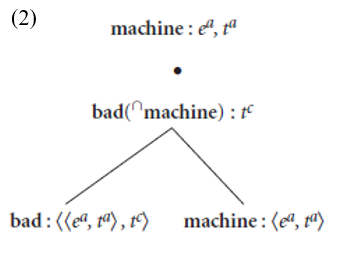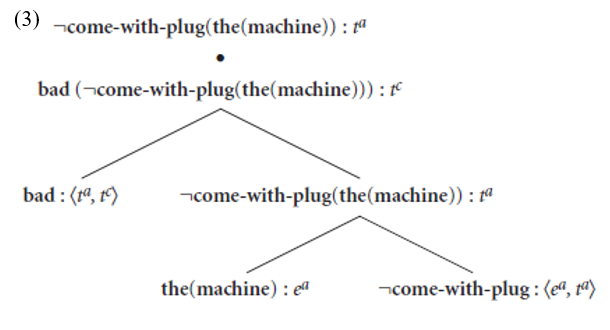

Grammar


Tenses


Present

Present Simple

Present Continuous

Present Perfect

Present Perfect Continuous


Past

Past Simple

Past Continuous

Past Perfect

Past Perfect Continuous


Future

Future Simple

Future Continuous

Future Perfect

Future Perfect Continuous


Parts Of Speech


Nouns

Countable and uncountable nouns

Verbal nouns

Singular and Plural nouns

Proper nouns

Nouns gender

Nouns definition

Concrete nouns

Abstract nouns

Common nouns

Collective nouns

Definition Of Nouns

Animate and Inanimate nouns

Nouns


Verbs

Stative and dynamic verbs

Finite and nonfinite verbs

To be verbs

Transitive and intransitive verbs

Auxiliary verbs

Modal verbs

Regular and irregular verbs

Action verbs

Verbs


Adverbs

Relative adverbs

Interrogative adverbs

Adverbs of time

Adverbs of place

Adverbs of reason

Adverbs of quantity

Adverbs of manner

Adverbs of frequency

Adverbs of affirmation

Adverbs


Adjectives

Quantitative adjective

Proper adjective

Possessive adjective

Numeral adjective

Interrogative adjective

Distributive adjective

Descriptive adjective

Demonstrative adjective


Pronouns

Subject pronoun

Relative pronoun

Reflexive pronoun

Reciprocal pronoun

Possessive pronoun

Personal pronoun

Interrogative pronoun

Indefinite pronoun

Emphatic pronoun

Distributive pronoun

Demonstrative pronoun

Pronouns


Pre Position


Preposition by function

Time preposition

Reason preposition

Possession preposition

Place preposition

Phrases preposition

Origin preposition

Measure preposition

Direction preposition

Contrast preposition

Agent preposition


Preposition by construction

Simple preposition

Phrase preposition

Double preposition

Compound preposition

prepositions


Conjunctions

Subordinating conjunction

Correlative conjunction

Coordinating conjunction

Conjunctive adverbs

conjunctions


Interjections

Express calling interjection

Phrases

Sentences

Clauses


Grammar Rules

Passive and Active

Preference

Requests and offers

wishes

Be used to

Some and any

Could have done

Describing people

Giving advices

Possession

Comparative and superlative

Giving Reason

Making Suggestions

Apologizing

Forming questions

Since and for

Directions

Obligation

Adverbials

invitation

Articles

Imaginary condition

Zero conditional

First conditional

Second conditional

Third conditional

Reported speech

Demonstratives

Determiners

Direct and Indirect speech


Linguistics

Phonetics

Phonology

Linguistics fields

Syntax

Morphology

Semantics

pragmatics

History

Writing

Grammar

Phonetics and Phonology

Semiotics


Reading Comprehension

Elementary

Intermediate

Advanced


Teaching Methods

Teaching Strategies

Assessment
MODIFIER POSITION IN COMPUTING EXPRESSIVE MEANING - SOME BUMPS IN THE ROAD AND A POSITIVE PREDICTION
المؤلف:
MARCIN MORZYCKI
المصدر:
Adjectives and Adverbs: Syntax, Semantics, and Discourse
الجزء والصفحة:
P111-C5
2025-04-16
871
Modifier position in computing expressive meaning - Some bumps in the road and a positive prediction
At least two significant challenges present themselves in directly extending this approach to the phenomena of interest here.
Problems with what is modified As Potts himself observes, there are many uses of expressive adjectives of this sort – in fact, of damn in particular – for which something more must be said. What he proposes to deal with these cases, though, proves to be of limited help with respect to the current goals. A clear problematic case is (1):

Given (2) in Potts 2005: Some theoretical machinery and damn expressive adjectives, the predicted interpretation here would be one in which damn machine expresses generalized disapproval of machines as a kind:

This isn’t the desired result, though. One can very naturally talk about a damn machine without having the sentiment that machines are bad.
What Potts proposes to deal with this is that damn in these instances receives a clause-modifying adverbial interpretation, and actually gives rise to a semantic representation like (3):

Importantly, this proposal has some firmempirical grounding – various adjectives can, under particular and somewhat mysterious circumstances, receive “adverbial” readings. The most familiar such case may be The occasional sailor walked by (Stump 1981; Larson 1999; Zimmerman 2000), in which the contribution of occasional is paraphrasable with an adverb as Occasionally, a sailor walked by.
However, the predicted interpretation for this sentence still raises some difficulties. The expressive meaning now assigned to the sentence is one that might otherwise be conveyed by uttering Damn. The machine didn’t come with an electric plug. Certainly, this is an improvement.
Problems with other modifiers If either version of this approach were simply applied as-is to most of the adjectives and adverbs of interest here, the wrong interpretation would result. Neither of the predicted interpretations expressed in (4a) and (4b) properly characterize the contribution of the adjective:

The situation is similar with respect to adverbs, though it is not entirely clear what an “adverbial reading” of an adverb would be

Positive prediction In light of these problems, why go down this road? It is of course possible that the behavior of inherently expressive modifiers such as damn is in some essential way unrelated to how garden-variety modifiers can be interpreted nonrestrictively. But despite the obstacles to connecting these phenomena directly, drawing such a connection does make a surprising and desirable prediction.
It is part of the lexical semantics of damn and fucking that they can receive expressive interpretations only – they have no meaning apart from this, and there is no way to interpret them as contributing ordinary descriptive meaning. If what is banned from post-head positions is exactly this kind of meaning, then it should be the case that damn, having no non-expressive meaning to contribute, should be unable to occur in such positions at all. This is in fact the case:
 الاكثر قراءة في Linguistics fields
الاكثر قراءة في Linguistics fields
 اخر الاخبار
اخر الاخبار
اخبار العتبة العباسية المقدسة

الآخبار الصحية















 قسم الشؤون الفكرية يصدر كتاباً يوثق تاريخ السدانة في العتبة العباسية المقدسة
قسم الشؤون الفكرية يصدر كتاباً يوثق تاريخ السدانة في العتبة العباسية المقدسة "المهمة".. إصدار قصصي يوثّق القصص الفائزة في مسابقة فتوى الدفاع المقدسة للقصة القصيرة
"المهمة".. إصدار قصصي يوثّق القصص الفائزة في مسابقة فتوى الدفاع المقدسة للقصة القصيرة (نوافذ).. إصدار أدبي يوثق القصص الفائزة في مسابقة الإمام العسكري (عليه السلام)
(نوافذ).. إصدار أدبي يوثق القصص الفائزة في مسابقة الإمام العسكري (عليه السلام)


















